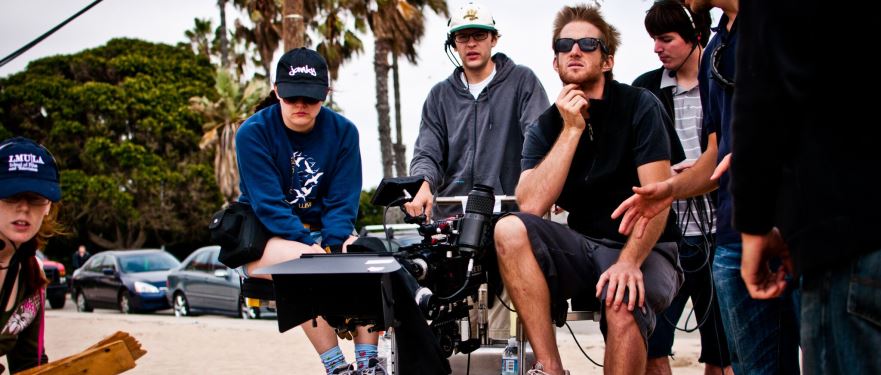Production (Film and Television)

What is Production (Film and Television)?
LMU's Production (Film and Television) major helps students understand how to express their ideas on the screen – whether that screen is in a theater, at home, or held in the palm of a hand. Beyond the existing television and theatrical feature landscape, new forms of media empower a single person to be both a worldwide broadcaster and a very selective receiver.
The major immerses students in the art of storytelling for the screen. Majors study great works of world cinema, both past and present, and ponder the ramifications of emerging media. They receive expert hands-on training in writing scripts, directing actors, cinematography, editing, and sound recording and design. In the process, each student learns about the challenging relationship between art and technique, and how both serve each other.
What do Production (Film and Television) majors do?
Majors learn the practical aspects of mounting a production, including budgeting, location scouting, casting, set design and construction, filming, post-production, and the importance of safety. They also develop leadership and teamwork skills. Each student’s experience culminates with a senior project; advanced students make their own thesis film.
Majors also learn film theory and gain an appreciation for a wide variety of foreign, independent, documentary, and experimental works.
Is this major right for you?
You might be a Production (Film and Television) major if you:
- Are a storyteller
- Have a passion for directing
- Have a cinematic vision
- Are a sound, set, or camera whiz
- Are creative
- Have a passion for directing, editing and special visual effects
About our faculty
Our award-winning faculty members are experts at making feature films, documentaries, television shows, dance and music videos, video art, and new media art. Their work has been seen worldwide in theaters, on TV, and at film festivals, museums and art galleries.
Faculty members also have produced CDs, worked in still photography, produced Web programming, worked in TV programming, and facilitated mergers and acquisitions. Books written by faculty members include A Guide to Screenwriting Success.
About our students and graduates
Our majors receive valuable assistance from the School of Film and Television’s Office of Industry Relations. This office is our students' lifeline to the entertainment industry. The office manages student industry opportunities through a comprehensive set of programs that includes: career advisement; assistance in developing portfolios; and assistance connecting students with key internships, industry mentors, School of Film and Television alumni; and agents, managers, guilds and professional associations.
Students have access to the SPO, the School of Film and Television's production office.
Graduates will be prepared for a range of creative careers in entertainment and other industries. Our distinguished alumni have won prestigious honors, including Academy Awards for screenwriting and sound re-recording and Emmy Awards for producing, sound editing, and picture editing.
Representative courses
Our courses have included:
- Production I
- Production II
- Production III
- Production IV (Non-Fiction)
- Production IV (Fiction)
- Documentary Pre-Production
- Cinematography
- Fundamentals of Directing
- Production Planning
- Post-Production
- Post-Production Sound
- Advanced Editing
- Post-Production Effects
- Internship
- Independent Studies
More Resources (Links)